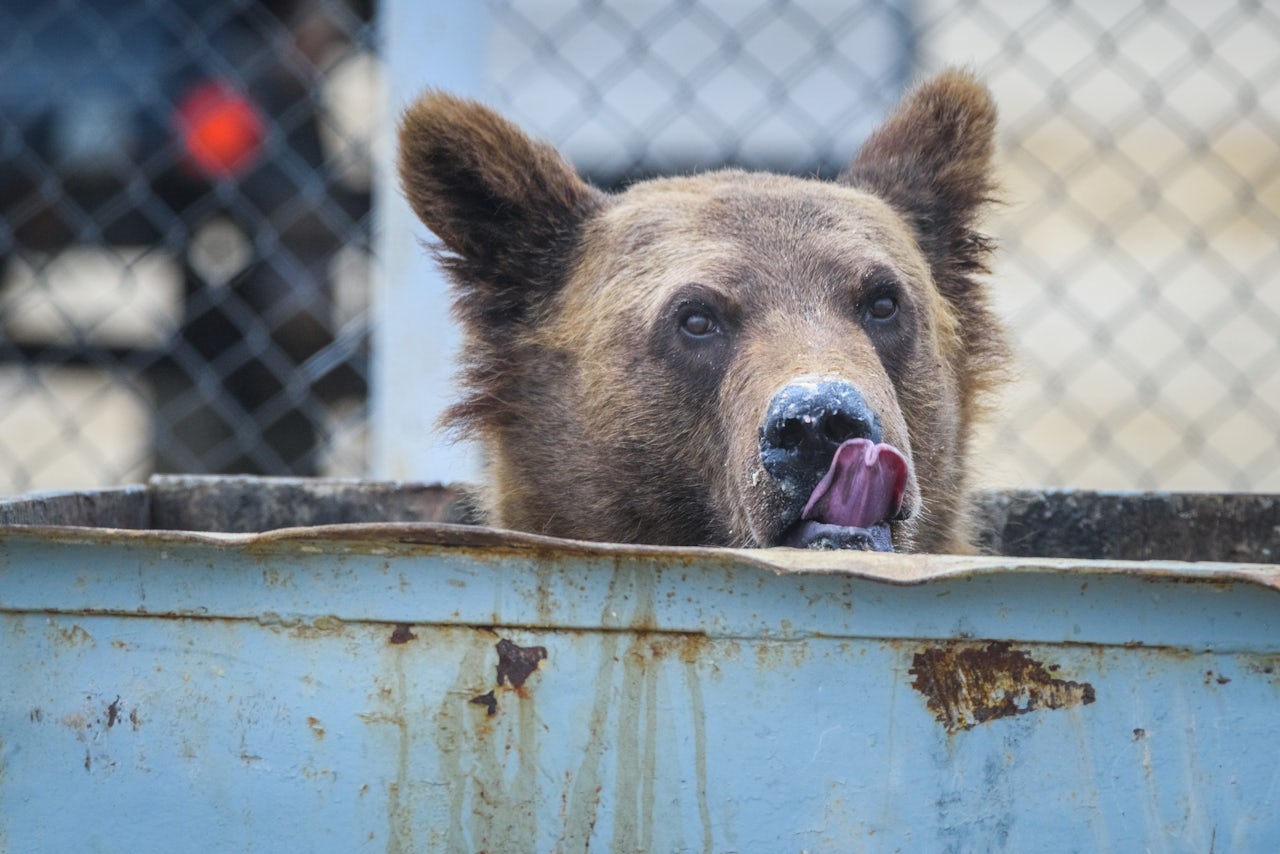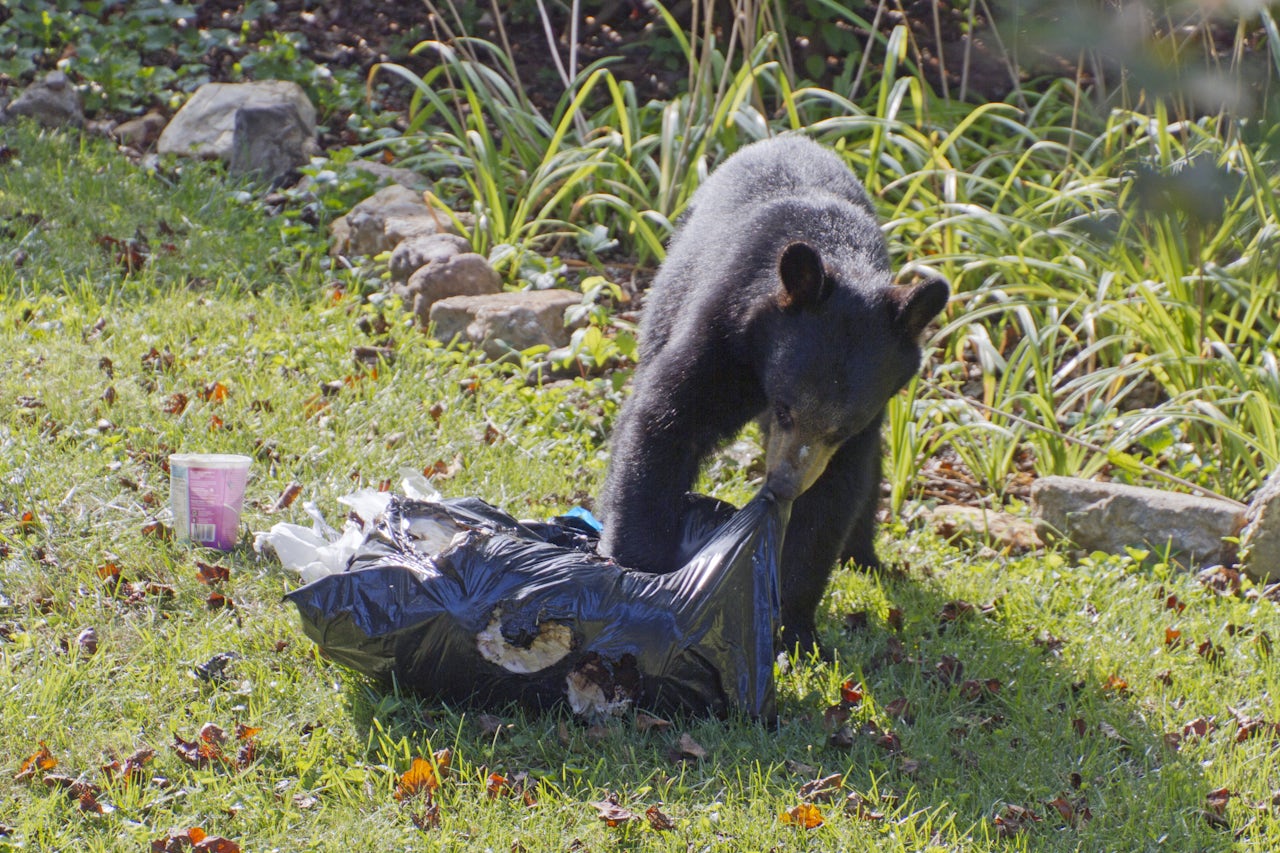At some point in my childhood I was taught that the average bear really likes snacks. In addition to neighbors complaining of stolen bird feeders and roughed-up outdoor grills, I seem to recall that there was one very smart bear, smarter than average, who was particularly adept at pilfering unattended picnic baskets. Yogi, I think his name was.
But cartoon bears aren’t the only bears purloining human vittles. Last week, a very clever bear broke into a New Jersey woman’s car and devoured two dozen cupcakes. The woman, who owns a vegan, gluten-free bakery, told a reporter at local newspaper The Record that she left the cupcakes in her SUV overnight so they could be delivered first thing the next day. Early that morning she awoke to hear the family dog barking at a late-night interloper mulling around in the backyard. She would later discover her car had endured a broken window and multiple frosting smudges, along with the disappearance of her valuable cupcake provisions. (In honor of the bear, the bakery now sells a new line of bear-themed cupcakes for animal lovers of the gluten sensitive persuasion).
The Jersey bear is far from the only bear helping itself to people-food this year. Earlier this month, a tag team of nosh-bears swiped a bag of fast food from an unoccupied Toyota Prius in North Carolina. Some neighbors caught the incident on camera and shared the video with local media outlets. The anonymous woman behind the camera seemed to enamored with the bears, repeatedly exclaiming “Bless their hearts!” as the burly burglars made off with their meal. A few days before that, an Oregon resident was bewildered to discover that bears had ransacked his entire neighborhood. "I looked out my side window and saw the neighbors’ garbage everywhere,” an area man bemoaned to a local reporter. “I looked out my front window and it was more of the same.”
Obviously a pattern is emerging here: bears are after all of our best snacks, and they’re winning. They’re scouring our human habitations, ravaging our Priuses and turning over garbage bins in a relentless quest for artisan cupcakes and neglected french fries, and we’re powerless to stop them.
Back in January, some zookeepers got themselves in a bit of trouble when when they tried to indulge one captive bear's voracious appetite for sweets at an Alberta Dairy Queen, letting him slurp up an ice cream cone out of a DQ employee’s hand extended through the drive thru window. They filmed the encounter and shared it on social media as a humorous way to remind people not to feed bears, but the video was later pulled when it was revealed that the bear’s handlers had taken the beast out for a joyride, and failed to report that they did so with the local authorities.
But of all the recent accounts of bear thievery, my favorite comes from a recent New York Times article, which quotes a 2015 report from the Nevada Department of Wildlife. In the report, a woman living near Lake Tahoe alleges that a bear opened an unlocked door to her house, entered the kitchen, “took a package of macaroni and a bag of Cheetos” out of the pantry, then left without even cooking the macaroni. Not only are bears smarter than I thought, they also act pretty much the same way I do when I stop by my parents’ house.
So why are bears suddenly acting like foodie kleptomaniacs? Generally speaking, bears are hungrier in springtime after having lost a large percentage of their body weight during their winter hibernation. But as the aforementioned Times article explains, there are a number of complicated reasons why bears prowl for human munchies, chief among those reasons being human-created climate change.
Climate change has been particularly disruptive for bears’ eating and sleeping habits, causing them to wake up sooner and enter urban areas more frequently in search of alternative food sources. Citing a 2017 study, The Times notes that bears hibernate for an average of six fewer days for every degree Celsius that minimum temperatures rise during winter. At Lake Tahoe, as the report mentions, the weather was 5.4 degrees Celsius hotter than usual this January, meaning most bears there didn’t get much quality R&R this winter. The study also predicts that the average bear’s hibernation period will be a month shorter by the middle of this century.
Because of climate change, it’s possible that a couple decades from now, sleepy, hungry, and pissed-off bears will be new normal — as will strange interbred bear species like the grizzly-polar bear hybrids currently cropping up in Alaska, who will clearly all be ravenous in their lust for Dippin’ Dots, the ice cream we will all consume in the future. And if this new species of under-rested bears does deplete our entire supply of everything sugary and delicious, we won’t have anyone to blame but ourselves.

